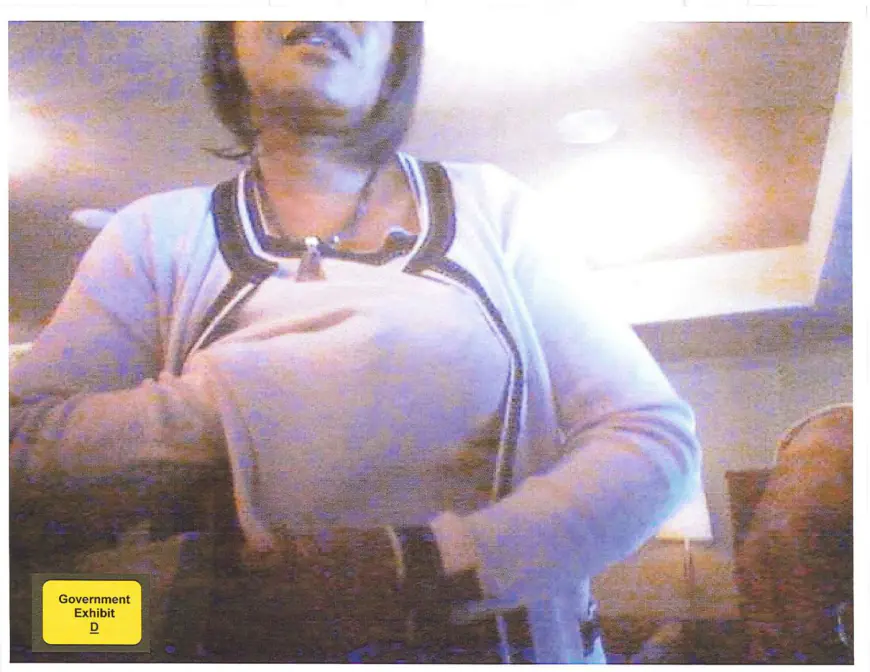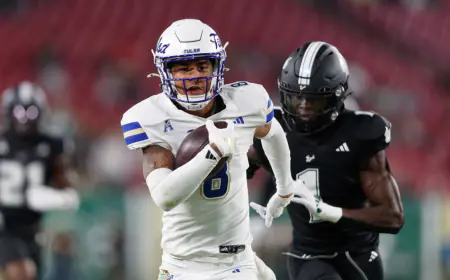Massachusetts corruption: Officials lugged before Tania Fernandes Anderson
With her arrest Friday morning, Boston City Councilor Tania Fernandes Anderson joined a sordid cast of Massachusetts officials accused of public corruption. Fernandes Anderson, 45, was indicted on five counts of aiding and abetting wire fraud and one count of aiding and abetting theft concerning a program receiving federal funds, according to court records and […]

With her arrest Friday morning, Boston City Councilor Tania Fernandes Anderson joined a sordid cast of Massachusetts officials accused of public corruption.
Fernandes Anderson, 45, was indicted on five counts of aiding and abetting wire fraud and one count of aiding and abetting theft concerning a program receiving federal funds, according to court records and a publicly available indictment. FBI agents arrested the councilor at her Dorchester home at around 6 a.m. Friday. Her district also includes Roxbury, Fenway, and part of the South End.
Fernandes Anderson is accused of hiring a relative to her staff and giving this staff member a generous bonus of $13,000 — but under the secret condition that $7,000 tax-free of that bonus be kicked back to her. The feds say the cash was handed over in a City Hall bathroom.
The sensitive nature of the exchange spot brings to mind former Massachusetts state Sen. Dianne Wilkerson, who was photographed stuffing a $1,000 wad of cash into her bra in a Beacon Hill restaurant.
Here are just a few famous Bay State officials who made headlines for public corruption.
Dianne Wilkerson
Six-term state Sen. Wilkerson, a Roxbury Democrat, pleaded guilty in 2010 to eight counts of attempted extortion. The Roxbury Democrat was arrested, with $6,000 in cash in her purse, in October 2008 on charges that she pocketed $23,500 in bribes between 2002 and 2008. For that she was slapped with a 3-and-a-half year sentence in federal prison in Danbury, Connecticut. She was released in 2013.
Wilkerson’s senate district overlapped somewhat with Fernandes Anderson’s council district, as it comprised neighborhoods including Roxbury, the South End and parts of Fenway.
In what the feds described as a “painstaking” 18-month investigation, Wilkerson was indicted on 23 total charges including those she would eventually plead guilty to as well as charges of conspiracy to extort under color of official right, theft of honest services mail fraud/attempted theft of honest mail fraud, and theft of honest services wire fraud. These additional charges were dropped when she copped to the plea deal that avoided the trial scheduled for June 21, 2010.
The feds say that Wilkerson accepted eight bribes totaling $23,500 in exchange for the senator’s influence on Beacon Hill. The most famous such bribe was accepted during a June 2007 lunch at the restaurant No. 9 Park, in which she was photographed stuffing $1,000 into her bra.
Criminal complaints said Wilkerson accepted bribes to convert control of an unused portion of land at the corner of Harrison Avenue and Melnea Cass Boulevard called “Parcel 8” from the state to private developers. The complaints said she also accepted bribes from a would-be restaurateur seeking a liquor license.
Charles “Chuck” Turner
Wilkerson wasn’t alone in her bribery schemes. Wilkerson was indicted along with then-Boston City Councilor Charles “Chuck” Turner, who was also accused of taking a bribe for his political influence.
But when Wilkerson accepted her plea deal, Turner took another route: he told the Herald he was ready for court. That didn’t work out for him, as a federal jury in October 2010 found the Roxbury Green Party politician guilty on all counts related to him taking a $1,000 bribe from an FBI informant and then lying about it to authorities.
The feds say that the informant was a businessman who was looking to land a liquor license for a proposed nightclub.
Turner, who as the only witness in his defense said he didn’t take the cash but that his memory was foggy, was defiant even in the face of conviction and vowed to continue his political work even behind bars.
“Life is life and they made their decision,” Turner, whose seat on the council was the same as Fernandes Anderson, said following the verdict. “I’m not the first person who’s innocent to be sent to jail.”
Turner faced up to 25 years in prison but served only 28 months. He was kicked off the city council following his conviction. Turner died on Christmas Day 2019 after a long battle with cancer.
Jasiel Correia
Heading south, former Fall River Mayor Jasiel Correia II was sentenced in September 2021 to six years in prison for his own corruption case, permanently dulling the once-gleaming Democrat star who was elected mayor in 2015 at just 23 years old.
He was convicted on several counts of wire fraud, extortion and extortion conspiracy — even after the judge tossed several convictions following the trial. He was charged with both misleading investors into a tech start-up and orchestrating a pay-to-play scheme with marijuana vendors in which they had to bribe him to get a license from the city.
The one-term city councilor told mayoral voters that he was a successful businessman who could bring new life into Fall River — but the trial confirmed that he was instead a scammy techbro who funded what the criminal complaint described as his “lavish” lifestyle, complete with stays at fancy hotels and a Mercedes car, with investor money intended for his smartphone app “SnoOwl,” an app with the nebulous goal of connecting businesses with consumers.
Correia told potential investors that he “was a successful tech entrepreneur who previously sold another app, Findit Networks, for a large profit; their investment funds would be used for expenses related to the development of the app; he would not take a salary or otherwise draw compensation from SnoOwl; and he would use his best efforts to ensure the success of SnoOwl,” according to the criminal complaint.
Seven investors took the bait and flooded the start-up with $363,690 in capital. The feds say that Correia used more than ⅔ of that money to enrich himself “while neglecting the development of the company to focus on his political career.”
The criminal complaint said that Correia’s neglect of SnoOwl — which he meticulously obscured from investors — was extreme, including “failing to do even the most basic tasks to keep the company viable.” He stopped paying the software developer, stopped paying server fees, and stopped paying “the nominal legal fees necessary to protect SnoOwl’s intellectual property.”



What's Your Reaction?









































































































